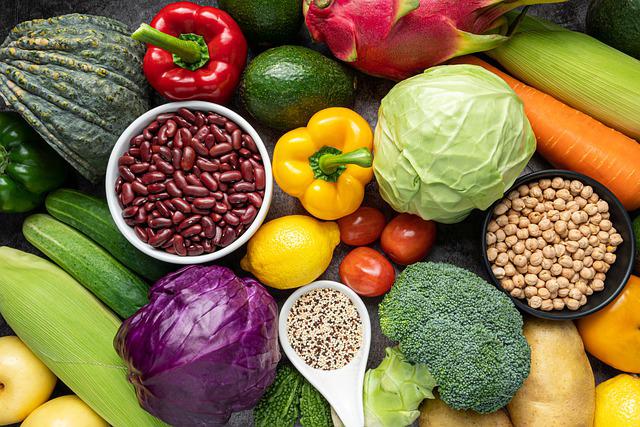Navigating the world of nutrition for toddlers and young children can be both exciting and challenging for parents and caregivers. During these formative years, children experience rapid growth and development, making it crucial to provide them with the nutrients they need to thrive. In this comprehensive guide, we’ll explore the dietary needs of toddlers and kids, offering evidence-based recommendations and practical tips to support their health and well-being.

Understanding the Nutritional Needs of Toddlers and Kids:
The toddler and early childhood years are characterized by significant physical, cognitive, and emotional development. During this period, children require a balanced diet rich in essential nutrients to fuel their growth, support their immune system, and promote cognitive function. Key nutrients for toddlers and kids include protein, carbohydrates, healthy fats, vitamins, and minerals.
Protein is essential for muscle growth and repair, while carbohydrates provide energy for active play and brain function. Healthy fats, such as those found in avocados, nuts, and fish, are crucial for brain development and overall health. Vitamins and minerals, including iron, calcium, vitamin D, and zinc, play important roles in bone health, immune function, and various physiological processes.
Breastfeeding and Formula Feeding
Breastfeeding provides the optimal nutrition for infants and is recommended by healthcare professionals as the preferred feeding method for the first six months of life. Breast milk contains a perfect balance of nutrients and antibodies that support infants’ growth and immune system development. For mothers who are unable to breastfeed or choose not to, infant formula is a suitable alternative that provides essential nutrients for infants’ growth and development.
As toddlers transition to a more varied diet, breast milk or formula continues to provide valuable nutrition and can complement solid foods. It is important to continue offering breast milk or formula until at least 12 months of age, as they provide essential nutrients that may be lacking in a toddler’s diet.

Introducing Solid Foods
Around six months of age, most toddlers are ready to begin exploring solid foods. Introducing solid foods is an exciting milestone in a child’s development and an opportunity to expose them to a wide variety of flavors and textures. Start with single-ingredient purees or mashed foods, such as cooked vegetables, fruits, and iron-fortified cereals.
As toddlers become more comfortable with solid foods, gradually introduce a variety of nutrient-rich foods, including fruits, vegetables, whole grains, lean proteins, and healthy fats. Offer a rainbow of colors and flavors to ensure they receive a wide range of nutrients and antioxidants. Encourage self-feeding and exploration with finger foods, but always supervise mealtime to ensure safety.
Balancing Macronutrients
A balanced diet for toddlers and kids should include a mix of macronutrients to support their growth and development. Aim to include the following components in each meal:
Protein
Include sources of lean protein such as poultry, fish, eggs, dairy products, legumes, and tofu. Adequate protein intake is vital for promoting muscle growth, supporting immune function, and maintaining overall health.
Carbohydrates
Choose whole grains such as brown rice, whole wheat bread, oats, and quinoa, which provide fiber, vitamins, and minerals. Limit refined carbohydrates and sugary snacks, which offer little nutritional value.
Healthy Fats
Incorporate sources of healthy fats such as avocados, nuts, seeds, olive oil, and fatty fish like salmon and trout. Healthy fats are essential for brain development, hormone production, and overall health.
Fruits and Vegetables
Aim to include a variety of fruits and vegetables in every meal and snack. These colorful foods are rich in vitamins, minerals, antioxidants, and fiber, which are essential for growth, immune function, and digestive health.

Dairy or Dairy Alternatives
Include dairy products such as milk, yogurt, and cheese, or fortified dairy alternatives like almond milk or soy milk. Dairy products provide calcium, vitamin D, and protein, which are important for bone health and overall growth.
Addressing Picky Eating
Picky eating is a common challenge for parents of toddlers and young children. While it can be frustrating, it’s important to approach picky eating with patience and understanding. Here are some strategies for dealing with picky eaters:
Offer a Variety of Foods
Introduce a wide range of foods from an early age and continue to offer them regularly, even if your child initially refuses. Keep offering new foods alongside familiar favorites to encourage exploration.Make Meals Fun
Get creative with presentation and involve your child in meal preparation. Use cookie cutters to make fun shapes, arrange food in colorful patterns, and serve meals in colorful dishes to make them more appealing.

Set a Positive Example
Children learn by example, so model healthy eating behaviors yourself. Eat meals together as a family whenever possible and demonstrate a positive attitude toward food and eating.
Be Patient and Persistent
It may take time for a picky eater to accept new foods, so be patient and continue offering them without pressure or coercion. Offer praise and encouragement for trying new foods, even if they only take a small bite.
Supporting Healthy Eating Habits:
Establishing healthy eating habits early in life sets the foundation for a lifetime of good health. Here are some additional tips for promoting healthy eating habits in toddlers and kids:
Create a Routine
Establish regular meal and snack times to provide structure and consistency. Offer meals and snacks at roughly the same times each day to help regulate appetite and prevent grazing.

Limit Sugary Beverages and Snacks
Avoid offering sugary drinks like soda, fruit juice, and sports drinks, which can contribute to tooth decay and excess calorie intake. Instead, encourage water and milk as the primary beverages.
Be Mindful of Portion Sizes
Pay attention to portion sizes and serve appropriate portions based on your child’s age, size, and activity level. Offer smaller, more frequent meals and snacks to accommodate their smaller stomachs.
Encourage Physical Activity
In addition to a healthy diet, regular physical activity is essential for overall health and well-being. Encourage active play and outdoor activities to help children develop strong muscles and bones, maintain a healthy weight, and reduce the risk of chronic diseases.
Conclusion
In conclusion, providing toddlers and kids with a balanced diet that meets their nutritional needs is essential for promoting growth, development, and overall health. From breastfeeding and formula feeding in infancy to introducing solid foods and fostering healthy eating habits in childhood, parents and caregivers play a crucial role in shaping their children’s dietary habits and preferences. By offering a variety of nutrient-rich foods, modeling healthy eating behaviors, and creating a positive mealtime environment, we can set our children up for a lifetime of good health and well-being. Let us nourish their young minds and bodies with love, care, and nutritious food, guiding them towards a brighter and healthier future.













